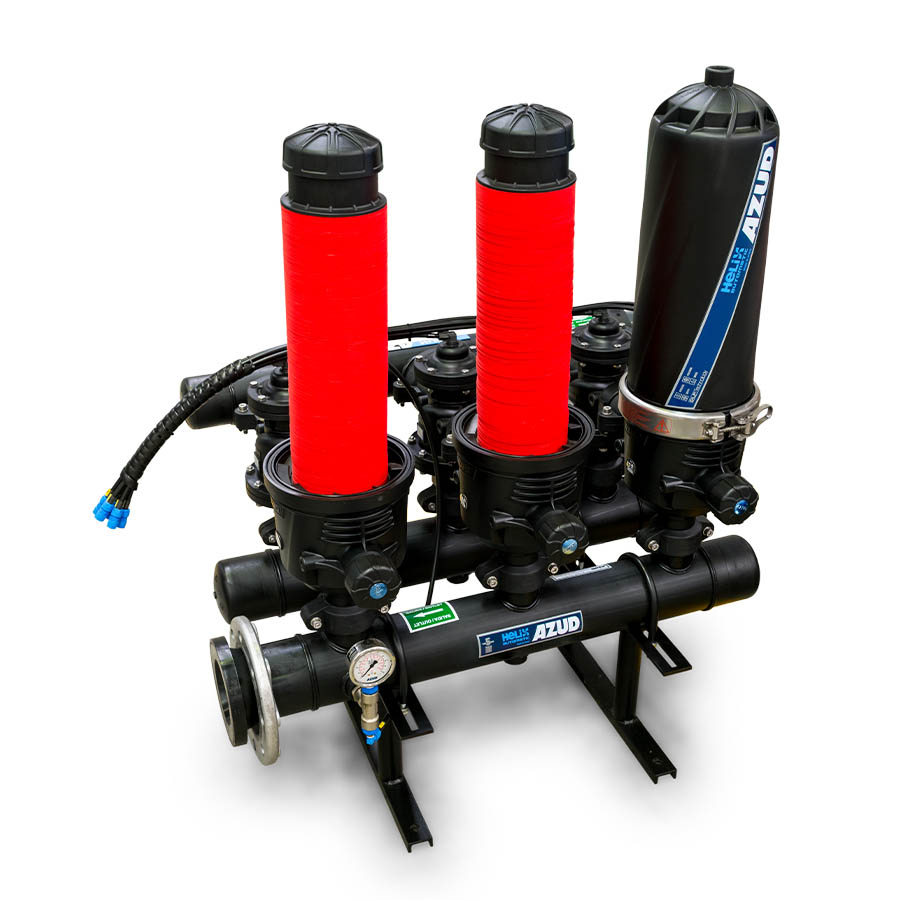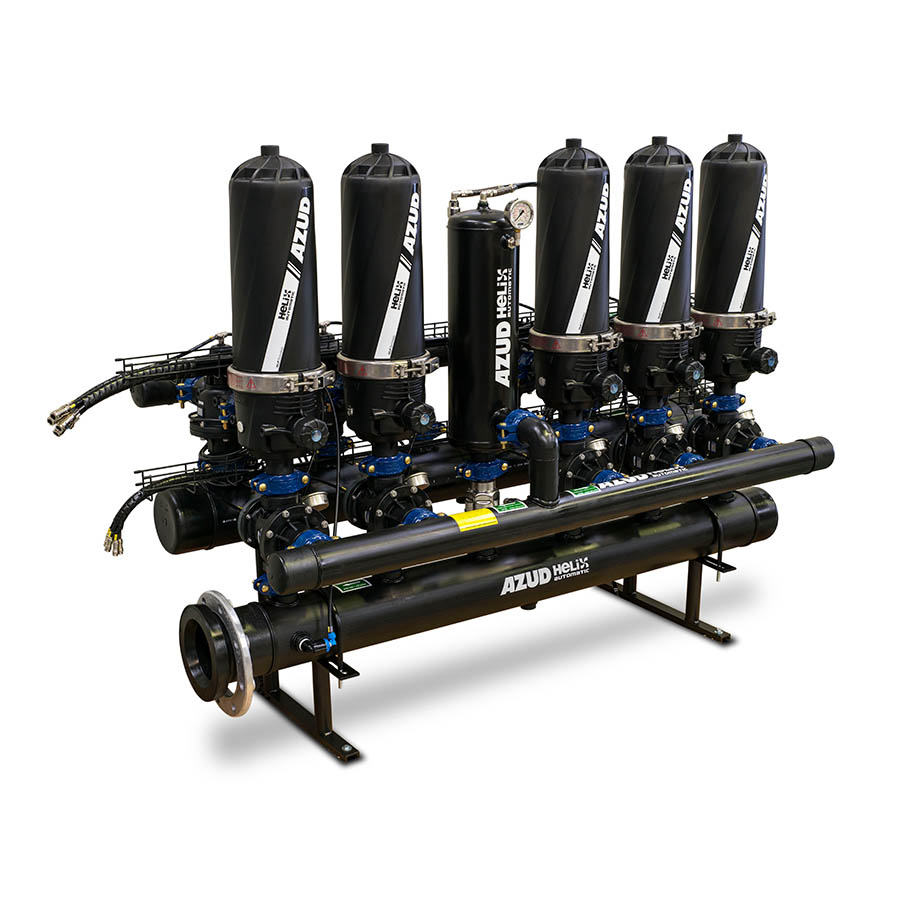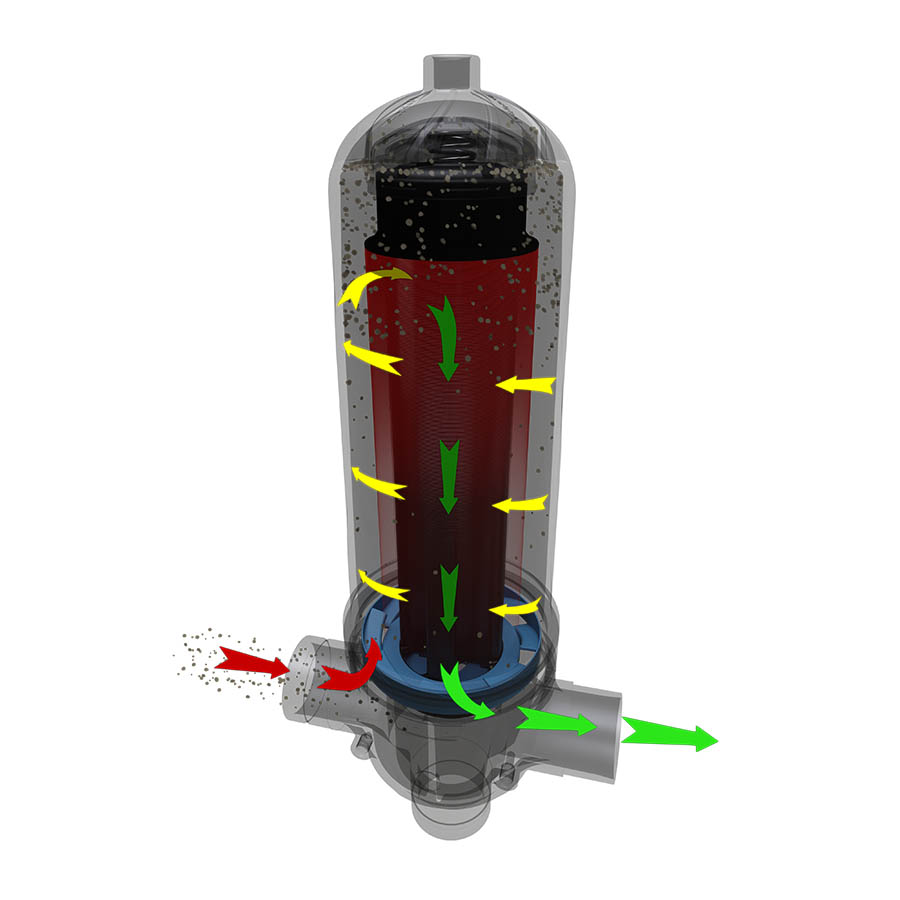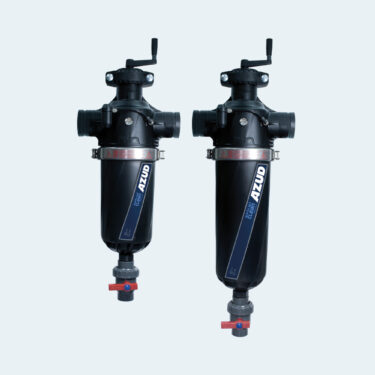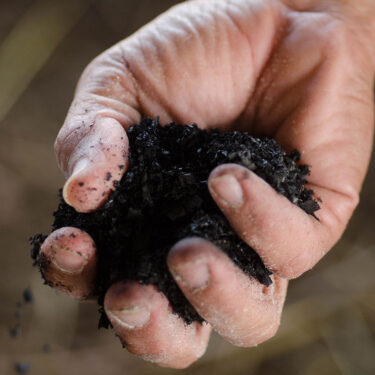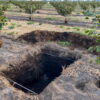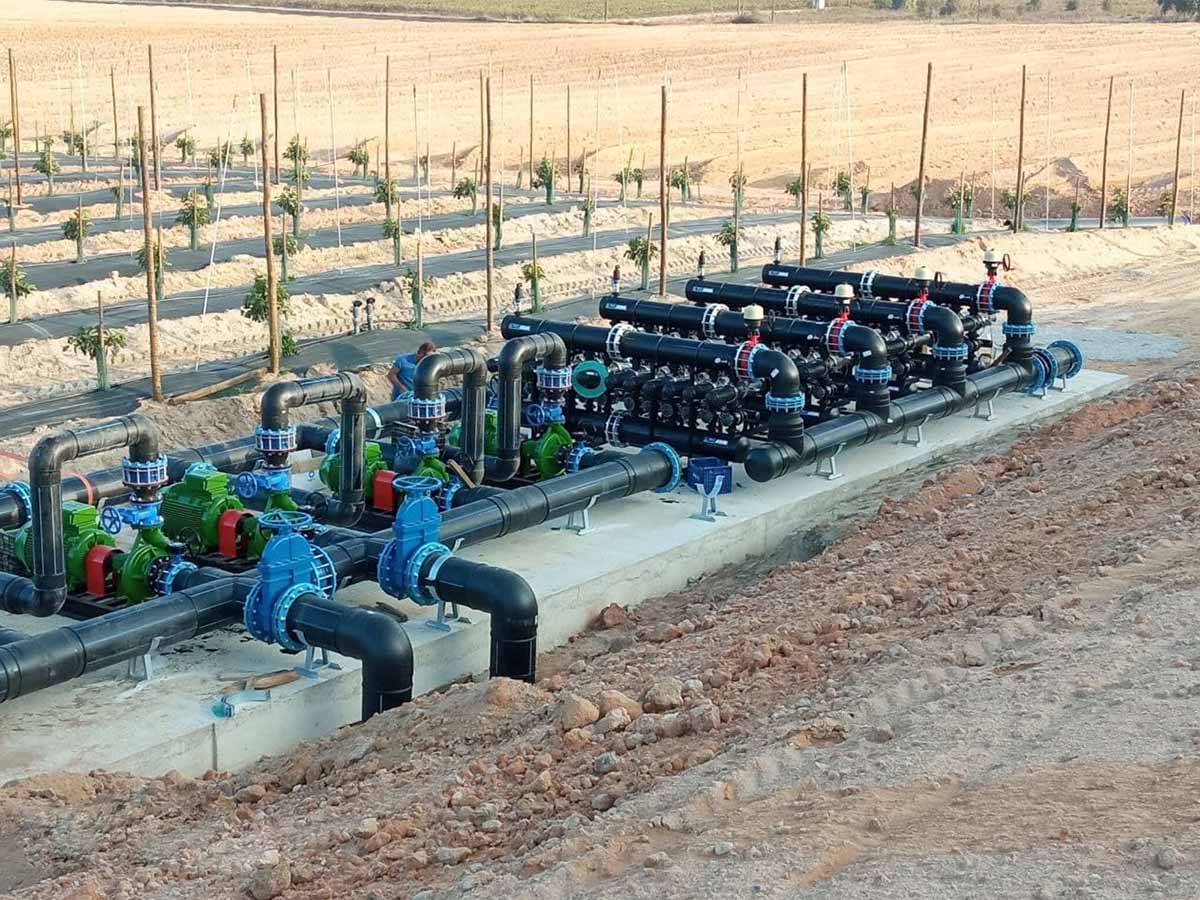Water treatment systems
Agriculture and Livestock | Water treatment systems
The treatment of water for use in the agriculture and livestock industry is essential to ensure first of all that water is irrigated with clean water, care of nozzles and supply valves, in livestock care of drinking water for the health of the animals. Let’s list some methods:
Filtration: Filters can be used to remove particles and suspended matter from the water, clogging of irrigation nozzles or valves, disc filters can be used with great water savings in cleaning.
Disinfection: Water can be disinfected with ultraviolet light, ozone or oxidants such as chlorine or chlorine dioxide to destroy pathogens and microorganisms.
Enrichment: Water can be enriched with nutrients to improve the quality of soil and water used in agriculture.
Biochar type charcoal for soil improvement: Improves the physicochemical properties of the soil. It avoids leaching of other nutrients and helps the colonization of beneficial microorganisms.
Desalination: Salt water (high sodium content or brackish water) can be treated into fresh water through a reverse osmosis system.
It is important to keep in mind that water treatment depends on the quality and intended use, so it is recommended to consult one of our technicians to determine the best method for use in the agricultural and livestock industry.
Water treatment and filtration in agriculture and livestock farming
Water treatment and filtration systems for agriculture and livestock are used for irrigation, drinking water, cleaning and watering animals.
In recent years, the use of drinking water filters and purifiers has increased considerably in the agricultural and livestock sector. The use of welding machines makes it possible to create systems with excellent hygienic characteristics and capable of meeting the requirements of EU legislation on the use of filters for irrigation [1]. We can offer two types of filters for this application: disc filters (DRM series) or cartridge filters (RPF series).
Filtration and disinfection in agriculture and livestock farming
Filtration and disinfection:
The importance of water treatment in agriculture and animal husbandry cannot be overemphasized. The health of your animals depends on a constant supply of clean, healthy water. In addition to providing the basic necessities for survival, proper hydration ensures that your livestock grow strong and healthy. To achieve this goal, it is essential that you invest in suitable filtration systems designed specifically for livestock applications. These systems must remove harmful contaminants and retain beneficial minerals, such as calcium carbonate or magnesium sulfate, which help strengthen the bones of young animals and prevent them from developing kidney stones later as adults.
In recent years, the use of drinking water filters and purifiers has increased considerably in the agricultural and livestock sector.
In recent years, the use of drinking water filters and purifiers has increased considerably in the agricultural and livestock sector. As a result of this development, farmers have become more aware of the importance of clean drinking water for their animals. Drinking water that is not pure can cause health problems such as diarrhea or colic among animals. For example, if you suspect that there may be bacteria in your drinking water, it would be wise to invest in some type of filtration system before using it with your farm animals.
The use of filters in the agricultural and livestock sector has increased significantly in recent decades, largely due to growing consumer demand for clean food products produced by healthy animals living in hygienic conditions free of disease pathogens such as E-coli, commonly known as “hamburger disease”, due to its association with the consumption of ground beef during the outbreaks that occurred in North America from the late 1980s to the early 1990s as a result of inadequate processing techniques used during the production process, which consisted of mixing meat scraps without the proper cooking temperatures necessary to eliminate the harmful organisms present in the raw materials. Consumers buy meat products without knowing that they may contain dangerous pathogenic organisms such as Salmonella Typhimurium 015 (ST 015), which causes serious illnesses such as bloody diarrhea, fever, chills, vomiting, abdominal cramps, dehydration and death if consumed unprepared and improperly cooked.
The types of filters we can offer for this application are:
- Disc filters
- Multimedia or deep bed filters
- Activated carbon purifiers
- Reverse Osmosis (RO) Systems
Disc filters for drip irrigation protection
Disc filters are used for water treatment in agriculture and animal husbandry. Disc filters are also called depth sediment ring filters. They can be used to remove solid particles and suspended matter from water.
Disc filters use a disc-shaped filter media that is placed in a housing, and require very little water for cleaning, making them very water-saving. The disc filter is connected with an inlet pipe, a filtered water outlet pipe and the backwash water going to drain. The filtered fluid enters through the inlet pipe, passes through the filter media and exits through the outlet pipe to another vessel or tank where it is collected once filtered. The filtration of this equipment ranges from 50 to 200 microns.
In conclusion, we can say that the use of filters in agriculture and livestock farming has become a common practice. The benefits of using these systems are many and include improved quality of life for workers, better sanitary conditions for animals and higher crop productivity.
-
AZUD HELIX AUTOMATIC 4DCL DLP agricultural and industrial irrigation filter
Add to quote -
FT200 AA automatic compressed air assisted disk filter
Add to quote -
AZUD Helix automatic disc filter series 300 DLP
Add to quote -
Irrigation water filter – AZUD SPIRAL CLEAN
Add to quote -
Filters for cooling towers or refrigeration towers
Add to quote -
AZUD Helix automatic disc filter series 200 DLP
Add to quote -
AZUD LCM Disc Filter Manual
Add to quote -
AZUD Helix automatic disc filter series 201
Add to quote


